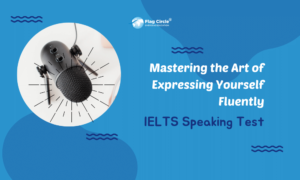What is the IELTS exam?
IELTS, which stands for the International English Language Testing System, is an extensively honored and internationally accepted English language proficiency test. It’s designed to assess the language skills of individuals who wish to study, work, or settle in English-speaking countries. It is an essential tool for individuals seeking to demonstrate their English language proficiency for various purposes, and it is recognized by thousands of institutions and organizations worldwide.
All about the IELTS exam
1. Types of IELTS:
IELTS Academic: This interpretation is generally needed for those who want to pursue advanced education or professional enrollment in an English-speaking country. It assesses your capability to use English in an academic environment.
IELTS General Training: This interpretation is generally needed for immigration purposes, work-related training, or non-academic purposes. It focuses on everyday language skills and is frequently used for visa operations.
2. Test Format:
IELTS consists of four main factors: listening, reading, writing, and speaking. The listening and speaking sections are the same for both academic and general training performances. The reading and writing sections differ between academic and general training.
3. Scoring System:
IELTS scores are reported on a nine-band scale, ranging from 0 to 9. Each section (listening, reading, writing, and speaking) receives a separate band score, and an overall band score is calculated as the average of these four scores.
4. Test Duration:
The total test time for both academic and general training performances is 2 hours and 45 minutes. Listening: 30 minutes; Reading: 60 minutes; Writing: 60 minutes; Speaking: 11–14 minutes (conducted as a face-to-face interview with a monitor).
5. Test Availability:
IELTS is available at various test centers worldwide. You can check the IELTS website for information on test centers and dates.
6. Test Preparation:
There are numerous sources available to help you prepare for the IELTS test, including practice tests, and study attendants. numerous language seminaries and online platforms offer IELTS medication courses to help campaigners ameliorate their chops. If you want to prepare for the IELTS exam, Click here to learn more.
7. Validity:
IELTS scores are generally valid for two years from the date of the test.
8. IELTS vs. Other English Proficiency Tests:
IELTS is one of several English language proficiency tests. Other common tests include TOEFL( Test of English as a Foreign Language) and PTE( Pearson Test of English). The choice between these tests frequently depends on the specific conditions of the institution or association to which you’re applying.
9. Results:
You’ll submit a Test Report Form( TRF) that shows your scores for each section and your overall band score. These results can be transferred to institutions or associations as demanded.
It’s essential to check the specific conditions of the institution or immigration authority you’re applying to in order to determine whether you should take the Academic or General Training interpretation of IELTS. Also, consider preparing for the test adequately to achieve your asked band score.
The Test Format of the IELTS exam
There are 4 Types of Tests included in the IELTS exam which are stated below:
1. Listening Purpose:
The (Harkening section) Listening Section assesses your capability to understand spoken English in different surroundings, including everyday exchanges, conversations, lectures, and donations.
Format: It consists of four recorded audio passages, each with a different speaker and content. There are 40 questions in aggregate.
Question Types: Questions may include multiple-choice, matching, labeling plates or charts, completing rulings, and note-taking.
Timing: The Listening test takes roughly 30 minutes, including 10 minutes for transferring answers to the answer distance.
Scoring: Your performance is assessed based on the number of correct answers, and scores range from 0 to 9.
2. Reading Purpose:
The Reading section evaluates your capability to comprehend written textbooks in various formats, similar to papers, announcements, and academic textbooks.
Format: There are three long passages, and you need to answer 40 questions in aggregate.
Question Types: Questions can include multiple-choice, matching headlines or features, relating information, true/ false not-given statements, and judgment completion.
Timing: The Reading test lasts for 60 minutes.
Scoring: Your score is determined by the number of correct answers and can range from 0 to 9.
3. Writing Purpose:
The Writing section assesses your capability to express ideas in written form using the correct alphabet, vocabulary, and association. Format: There are two tasks in the Writing section.
Task 1( Academic) You’re presented with a visual representation(e.g., graph, map, illustration) and are needed to write a descriptive report grounded on it.
Task 1( General Training) You’re given a situation or script and asked to write a letter in response.
Task 2( Both Academic and General Training) You must write an essay expressing your opinion or argument on a given content. Word Count Task 1 requires at least 150 words, while Task 2 requires at least 250 words.
Timing: You have 60 minutes to complete both Writing tasks.
Scoring: Task 1 and Task 2 are each scored independently, and the scores are equaled to give an overall Writing band score, ranging from 0 to 9.
4. Speaking Purpose:
The Speaking section assesses your capability to communicate verbally in English. It simulates a real-life discussion.
Format: The Speaking test consists of three corridors
Part 1 Preface and Interview( 4- 5 minutes)
Part 2 Long Turn (Cue Card)( 3- 4 minutes)
Part 3 Discussion( 4- 5 minutes)
Part 2 ( Cue Card) In this section, you’re given a cue card with content and prompts.
Timing: You have one nanosecond to prepare and also speak for 1- 2 minutes on the content.
Scoring: Speaking is assessed by an IELTS monitor and scored on a scale from 0 to 9, grounded on ignorance, vocabulary, alphabet, pronunciation, and consonance.
Each of these four factors contributes to your overall IELTS band score, and your performance in each section is pivotal to achieving your score for academic or immigration purposes. It’s essential to exercise and prepare specifically for each section to perform well on the test.
Can we retake the IELTS exam?
Yes, you can retake the IELTS test if you aren’t satisfied with your former results or if you wish to improve your scores. There are no restrictions on how numerous times you can take the IELTS test. There are some important points below to keep in mind:
1. Waiting Period:
There is no waiting period or limit on how soon you can retake the test. You can register for the next available test date that is convenient for you.
2. Score Reporting:
When you retake the IELTS exam, you will receive a new set of scores. Your previous scores do not impact your new scores, and institutions will only receive the scores you choose to send.
3. Test Fee:
You will need to pay the test fee each time you register for the IELTS exam. The fee can vary by location and may change over time, so be sure to check the official IELTS website or contact your local test center for the current fees.
4. Preparation:
Before retaking the exam, it’s advisable to thoroughly prepare and address the areas in which you may have performed less satisfactorily in your previous attempt. You can use practice materials, take preparation courses, and seek feedback to help improve your performance.
5. Booking a Test Date:
Register for a new test date through the official IELTS website or your local test center. Make sure to choose the appropriate version of the test (Academic or General training) based on your goals. We can also help you with IELTS test registration.
6. Score Validity:
Keep in mind that IELTS scores are typically valid for two years from the date of the test. Therefore, if your previous scores are still valid and meet the requirements of the institution or organization you are applying to, you may not need to retake the exam.
7. Consult institutions:
If you plan to retake the IELTS exam for a specific purpose, such as university admission or immigration, it’s a good idea to check with the institution or immigration authority to understand their policies regarding multiple test attempts and score acceptance.
“Self-belief and hard work will always earn you success.”
― Virat Kohli, Indian cricketer
CONCLUSION:
In conclusion, the IELTS (International English Language Testing System) exam is a vital tool for assessing and certifying English language proficiency on a global scale. It has a range of purposes, from facilitating academic admissions and professional certification to supporting immigration and visa applications. Additionally, it is used for personal development and self-assessment, helping individuals track their language skills over time.
With its academic and general training versions, the IELTS exam caters to a diverse range of needs, from students aspiring to study abroad to professionals seeking international career opportunities. Its four components—listening, reading, writing, and speaking—provide a comprehensive evaluation of a test-taker’s language abilities.
IELTS scores, reported on a nine-band scale, are recognized and accepted by numerous educational institutions, employers, immigration authorities, and organizations worldwide.
Overall, the IELTS exam is a cornerstone in the world of English language assessment, contributing to international mobility, cultural exchange, and opportunities for individuals to thrive in diverse English-speaking environments. Its continued relevance and acceptance underscore its importance in today’s interconnected world.
How can we help you?
Flag Circle Overseas Education has a team of expert and experienced trainers who are certified by Cambridge, the British Council, and IDP. They assist you with complete dedication and ensure that you achieve your exam goals for international education. We aim to get fully prepared to crack the IELTS exam on the first attempt.
Flag Circle IELTS Training is British Council accredited and provides the most comprehensive IELTS courses with 10+ years of teaching and more than 12,000 students trained, with a success rate of 96%. It is a live virtual IELTS class through an online platform to provide you with the convenient option of taking the training from the comfort of your home or office. Learn more

Mastering the IELTS Exam: Your Ultimate Guide to Achieving Academic Excellence



